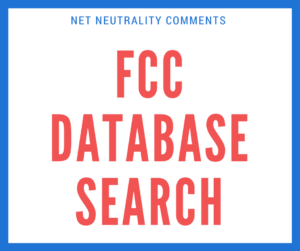What would you think if you saw your name and home address on a public comment addressed to a government agency – but… you never actually wrote a comment?
That is what has happened on the Federal Communications Commission (FCC)’s website in the online public comment space on net neutrality. Attorney General T.J. Donovan has determined that perhaps hundreds or even thousands of Vermonters may be affected by “fake comments” submitted to the FCC on this vital issue. One such Vermonter, Montpelier resident Irene Racz, was shocked to see a comment submitted to the FCC in her name opposing net neutrality – a position contrary to her actual views.
Now, the Attorney General is raising awareness about fake comments on the FCC’s proposed net neutrality rule change. His efforts follow an investigation by New York Attorney General Eric Schneiderman, who first alerted the public about tens of thousands of possible fake comments using stolen identities on the site.
Since the public comment period opened last April, Americans have submitted millions of comments—the vast majority in favor of preserving net neutrality. However, the process appears corrupted by an onslaught of fake comments. For example, news reports suggest that almost half a million fake comments have been linked with Russian email addresses.
Attorney General Donovan is calling on Vermonters to see if their names were stolen for false comments – and to report it to our office using a simple web tool if you are affected. Please check the Consumer Assistance Program’s portal to search the FCC database and the reporting tool at: https://www.uvm.edu/consumer/fake-fcc-comments
Any Vermonters who do find fake comments issued under their names should report it to our office and contact the FCC directly to request that phony comments be withdrawn. Additionally, Vermonters who have not submitted comments and wish to do so should enter them before the planned FCC net neutrality vote on December 14.
Attorney General Donovan and 12 other Attorneys General submitted comments to the FCC in July in favor of preserving net neutrality rules for a fair, free and open Internet. The current rules protect consumers by ensuring choice, transparency, and fairness. For example, it bars service providers from establishing “fast lanes” and “slow lanes” for consumers depending on partnerships or premiums.
Your voice is essential to this process.

